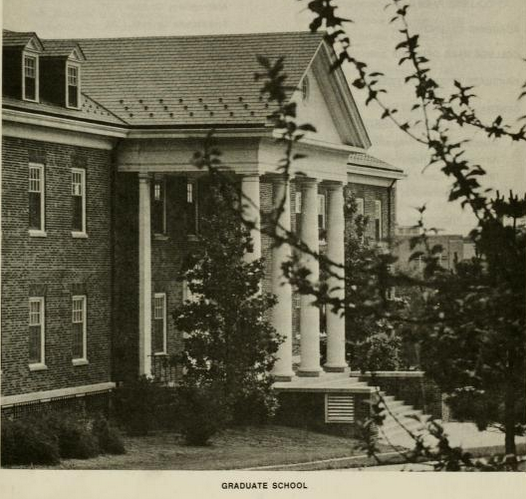 As the Graduate School nears its March 19 Centennial, the celebration planned for March 27 will headline some important figures in graduate education on the campus and beyond. In collaboration with the Council of College Associate Deans for Graduate Education (CADGE), Dean Steve Fetter and others have been working diliently to provide a program that highlights the past and present achievements of the Graduate School, while looking ahead to its future. Plans include remarks by President Wallace Loh, Dr. Brit Kirwan, Chancellor Emeritus of the University System of Maryland, Dr. Alan I. Leshner, CEO Emeritus of the American Association for the Advancement of Science, Dr. Bonnie Thornton Dill, Dr. Kimberly Griffin, Amy E. Gardner and Amy Steele.
As the Graduate School nears its March 19 Centennial, the celebration planned for March 27 will headline some important figures in graduate education on the campus and beyond. In collaboration with the Council of College Associate Deans for Graduate Education (CADGE), Dean Steve Fetter and others have been working diliently to provide a program that highlights the past and present achievements of the Graduate School, while looking ahead to its future. Plans include remarks by President Wallace Loh, Dr. Brit Kirwan, Chancellor Emeritus of the University System of Maryland, Dr. Alan I. Leshner, CEO Emeritus of the American Association for the Advancement of Science, Dr. Bonnie Thornton Dill, Dr. Kimberly Griffin, Amy E. Gardner and Amy Steele.
Founded on March 19, 1919, the Graduate School has witnessed the 1970's Vietnam War era protests, only second to Kent State, Queen Elizabeth II's visit to the campus in 1957, Billie Jean King's tennis exhibition (1973), and Eubie Blake at the 1978 Commencement. From the victorious graduation of Parren Mitchell (MA '52) to the first African American doctoral graduate Dr. Rebecca Carroll (EdD '66), there were many firsts by graduate students throughout the years. It was under the administration of the first Graduate Dean, Charles O. Appleman, that the first PhD was awarded to Charles E. Sando in 1921, followed by the first woman doctoral graduate in 1931, later a prominent Oklahoma State University faculty, Dr. Daisy Inez Purdy.
The Graduate School's history is full of themes that are still relevant today - graduate program excellence, diversity, student support and professional development, housing, international scholar recognition, and funding. In 100 years, 19 graduate deans sustained a tradition of advocacy and collaboration. In 1980, Dr. Rose-Marie G. Oster was the first woman dean bringing in a noteworthy team of diverse associate deans with Dr. Marie Davidson and Dr. Dalmas Taylor. Observes Kirwan, "Graduate education at the University of Maryland has a long and distinguished history. In fact, it was the excellence of graduate programs that lead the way to the international prominence the University now enjoys across the board."
The Centennial Celebration, entitled 'Envisioning the Future of Graduate Education at Maryland' will include guests from other institutions, campus VIPs, donors, alumni, graduate students, postdocs, faculty and administrators. The program will also include table discussions on 'Reflecting on the Past, Preparing for the Future' where groups will consider topics such as diversity, interdisciplinary research, professional development, mentoring, and non-academic careers. "This centennial corresponds with a rising tide of interest in transforming, or at least modernizing, graduate education. Various groups are working to bridge the disconnect between the fact that over 60% of new PhDs do not enter academic research careers but we continue to train them in the same way we have for the past 100 years, to be academic researchers," says Leshner.
"As we begin the next 100 years of graduate education, it is critical that we are intentional about our commitment to graduate education and training. My mentor and friend Jeffrey Milem often invokes the words of Sir Isaac Newton, "If I have seen further, it is by standing on the shoulders of giants," reminding me that we must honor those who came before us and inform the scholars, teachers, and leaders we become. I am struck by the realization that we have the honor and responsibility to be the shoulders on which the next generation will stand. To ensure that they see further than we can now, we must re-double our efforts to innovate as we teach, learn, and mentor," says Griffin.
